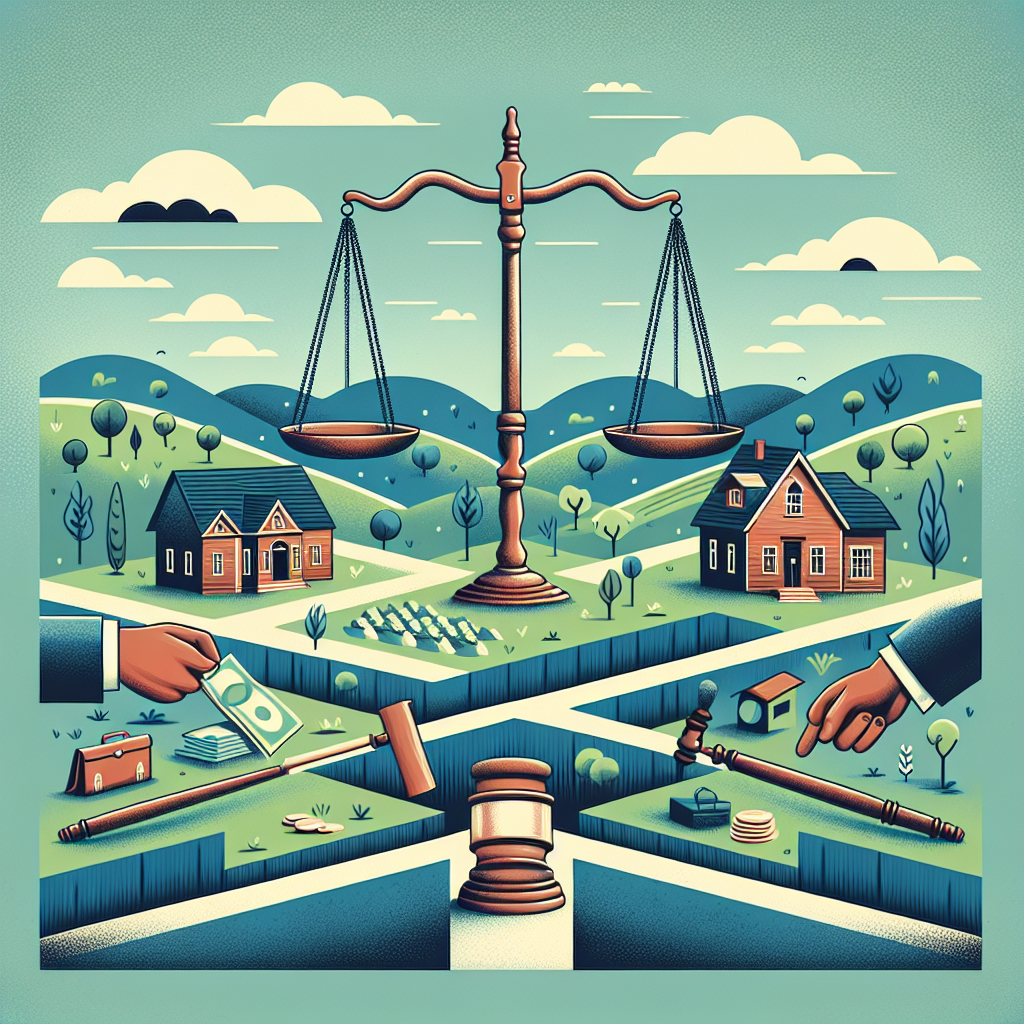Resolving Disputes over Property and Assets

Resolve Property Disputes with Expert Resolution Strategies
Understanding Property Disputes
Property disputes can arise in a variety of situations, such as divorce, inheritance, boundary disputes, and landlord-tenant disagreements. These disputes can be emotionally charged and have the potential to become lengthy and costly legal battles. In order to resolve property disputes effectively, it is important to understand the different types of disputes and the methods available for resolution.
Types of Property Disputes
Property disputes can generally be categorized into two types: real property disputes and personal property disputes. Real property disputes involve disagreements over land, buildings, and other physical structures, while personal property disputes involve items that can be moved, such as furniture, jewelry, and vehicles.
Real property disputes can arise over issues such as property boundaries, easements, and ownership rights. Personal property disputes can involve issues like ownership disputes, theft, and damage to property.
Identifying the Cause of the Dispute
In order to effectively resolve a property dispute, it is crucial to identify the cause of the dispute. This can help determine the appropriate method of resolution and can also aid in finding a fair and equitable solution.
Some common causes of property disputes include unclear ownership rights, disagreements over the value of the property, and misunderstandings about the terms of a contract or agreement. By identifying the cause of the dispute, the parties involved can better understand their rights and responsibilities and work towards a resolution.
Importance of Resolving Property Disputes
Resolving property disputes is crucial for several reasons. For starters, these disputes can often have a significant financial impact on those involved. Long and drawn-out legal battles over property can result in high legal fees and may also lead to a loss of time, energy, and resources.
Moreover, unresolved property disputes can strain relationships and create animosity between the parties involved. This can be particularly damaging in situations where the parties have ongoing relationships, such as in the case of co-owners or family members.
Resolving property disputes also helps to ensure that the rights of all parties are protected. By finding a fair and equitable solution, all parties can feel satisfied with the outcome and can move forward without any lingering animosity or resentment.
Choosing the Right Resolution Method
When it comes to resolving property disputes, there are several methods available, each with its own advantages and disadvantages. The best method for resolution will depend on the specific circumstances of the dispute and the preferences of the parties involved.
Some of the most common methods for resolving property disputes include negotiation, mediation, arbitration, and litigation. Let’s take a closer look at each of these methods.
Mediation: A Non-Litigation Option
Mediation is a form of alternative dispute resolution (ADR) that involves a neutral third party, known as a mediator, helping the parties to reach a mutually agreeable solution. This method is often preferred for its speed and cost-effectiveness, as it typically involves less time and expense than traditional litigation.
In mediation, the mediator facilitates communication between the parties and helps them to identify the underlying issues causing the dispute. The mediator does not make any decisions or impose any solutions but instead helps the parties to find a resolution that works for everyone involved.
Mediation is a voluntary process, meaning that all parties must agree to participate. However, if successful, it can be a beneficial option for resolving property disputes while maintaining relationships and avoiding further legal action.
Arbitration: A Faster Alternative to Court
Arbitration is another form of ADR in which a neutral third party, known as an arbitrator, is appointed to hear and decide on the dispute. Unlike mediation, the arbitrator has the power to make a binding decision that both parties must adhere to.
Arbitration is often preferred for its speed and efficiency, as it can be completed more quickly than traditional litigation. It is also a confidential process, which can be beneficial for preserving relationships and avoiding negative publicity.
However, arbitration can be more expensive than mediation, and the parties involved may have less control over the outcome compared to mediation. It is also important to note that the arbitrator’s decision is final and cannot be appealed.
Litigation: When All Else Fails
When other methods of resolution have failed, or when one party is unwilling to participate in ADR, litigation may be the only option for resolving a property dispute. Litigation is the process of resolving disputes through the court system, with each party presenting their case to a judge or jury.
Litigation is often considered the most adversarial and costly method of resolution and can also be a lengthy process. However, in certain cases, it may be necessary to protect one’s rights and seek a fair and just resolution.
Working with a Property Dispute Lawyer
Regardless of the method chosen for resolving a property dispute, it is always advisable to work with a lawyer experienced in handling property disputes. A lawyer can provide valuable guidance, help to identify the most appropriate method of resolution, and ensure that the rights and interests of their client are protected.
A lawyer can also assist with negotiating a settlement, drafting and reviewing contracts and agreements, and representing their client in court if necessary. They can also help to prevent potential disputes by ensuring that all agreements and contracts are clear and legally binding.
Prevention is Key
In conclusion, resolving disputes over property and assets can be a complex and emotionally charged process. However, by understanding the different types of property disputes and the various methods available for resolution, parties can work towards a fair and equitable solution.
It is also important to note that prevention is key in avoiding property disputes. This can be accomplished through clear communication, well-drafted contracts and agreements, and seeking professional legal advice when necessary. By taking proactive measures, parties can avoid potential disputes and protect their rights and interests.



